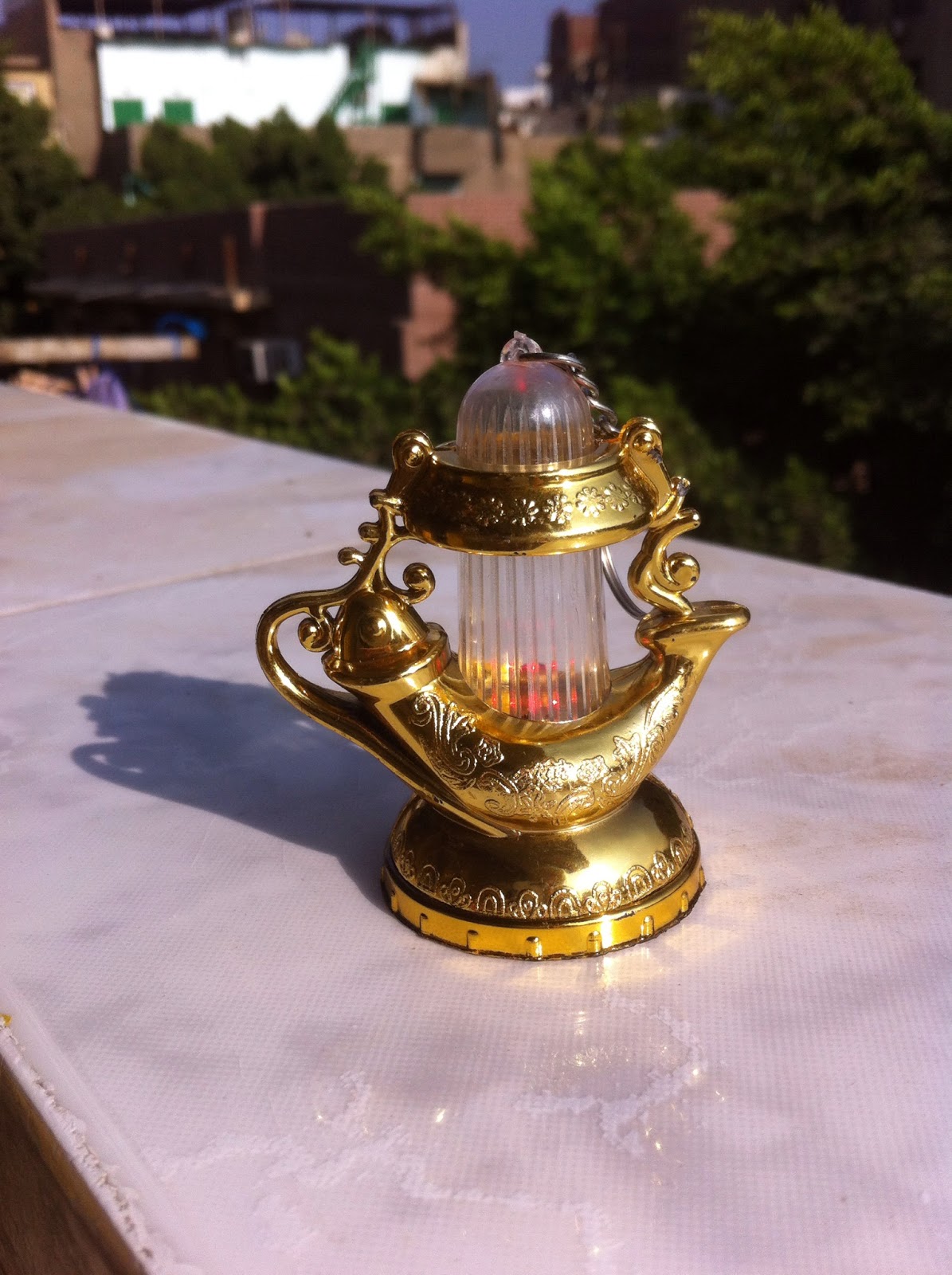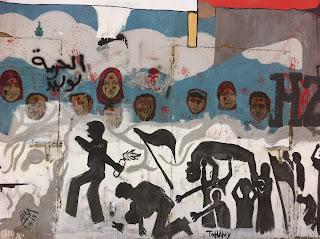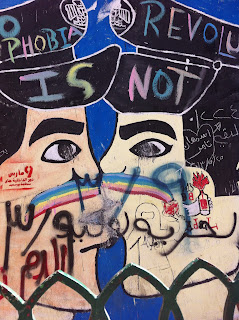Dokki, Cairo, Egypt: 7:30AM
Right now I am sitting on one of the three balconies in my apartment, sipping turkish coffee. The city is bright but quiet, a breeze wafts in as clean laundry dances in the wind. The major sounds are the ruffling of leaves that surround my apartment and the tweeting of the birds that nest there. The streets are largely empty besides for a few teenage boys which my roommate and I watched from the balcony. In all likelihood, my narrow street will remains this way for most of the day. I could probably sit here without hearing a whisper of the events shaking Egypt to its core.
Today is the day - 30/6.
Its hard to express the feeling of living in a country that is teetering on the edge... Of what? No one is quiet sure - civil war, another revolution, a military coup. The greatest feeling in cognitive dissidents. First thing I did this morning was read the
New York Times mostly in order to get an idea of what my friends and family are reading at home. It talks of coming violent clashes today, gun wielding protestors and possibility of civil war between supporters and critics of President Muhammad Morsi. The US Department has warned US citizens to avoid the demonstrations, pointing to the American student killed on Sunday while watching the demonstrations and the cases of sexual assault in Midan at-Tahrir. In the last few days, at least 5 people have died in clashes around Egypt - although none of them have been in Cairo.

While I do not want to the downplay the potential for violence, the feeling here is quite different. The images from Midan at-Tahrir were ones of joy last night not fear. At midnight, thousands of people still filled the square, waving flags and chanting "Get out" and "the People want the regime to fall." It was hard to imagine such images of optimism breaking down into violence and chaos. The people around us are discussing taking their country back from an incompetent government, referring to Morsi as the first elected idiot, not a downward spiral of conflict.
As a foreigner, I continue to wait. Today I will not be leaving my apartment until it becomes clear the path the demonstrations will take.
Yesterday, the sensation that I was living in two worlds, which were totally disconnected, was palpable. While the CASA program tested our phones and made preparations, my roommate and I went shopping for a dinner party. I was struck by the feeling that I had somehow become some out of touch aristocrat, sipping wine as the French Revolution broke out below me or that I was fiddling as Rome (was about ) to burn. At the same time, there really was not anything else to do and meeting with friends seemed better than sitting and waiting.
All in all, the Shariah Suliman Gohar, the main souq, near our apartment seemed no different than any other day. Vendors were set up selling an almost unending assortment of colorful fruits and vegetables along with bread, fish, meat and almost anything else you could want. A few people know me there now and I only had to show my face at one of my favorite stands before the vendor asked me if we I wanted cherries today.
I had decided to make kabob bil karaz (cherry kabob), a favorite dish of mine from the city of Aleppo in Syria (For my recipe see
Kabob Bil Karaz). I had been hoping for lamb so I walked up and down Shariah Suliman Gohar asking butchers if there carried it. Unable to find a single butcher with lamb, I settled on beef and choose the busiest butcher on the street, who was in the middle of slaughtering a whole cow in the front the store. The owner dressed in a tan galibya greeted us friendly and asked us to take a seat after I order a kilo of ground beef.

As we sat there, the butcher shop was a buzz with activity. One man was butchering ribs while another kid of around thirteen was slicing a giant slab of beef. The sight of a kid not old enough yet to shave, expertly butchering a hunk of meat, is a common sight in the Middle East. Children begin apprenticeships early or work in their family shops, following in their father's footsteps. Around my apartment in Damascus, there was a butcher shop in which a boy that could not have been older than ten often waited on us, wielding a meat cleaver with ease. It turns out that this thirteen year old boy was more competent than his older companion, who cut his finger. The boy quickly patched him up with the help of some bright red electrical tape. While trying to avoid the flying fat, my roommate and I took the opportunity for a vocabulary lesson. After asking several employees the word for ribs in Egyptian Arabic, which I only vaguely remembered, an older women happily explained it to us.

When we returned home, an email was reminding us in no uncertain terms that we should avoid all contact with the demonstrations and asking that we limited outside of our apartment. The rest of the afternoon was largely spent cooking and chatting in our kitchen. The desire to work has been almost completely absent the last few days. I took the opportunity to write some emails and practice an hour of yoga in our formal salon that has become my workout room.

In the evening our friends gathered, the table overflowing with Syrian and Palestinian dishes - makloubeh, Palestinian ful, mutbal, humus, various rice dishes, muhamara, beet salad, sweets, fruit and my cherry kabobs. Our Egyptian friends gave us all little lamps known as fanous for our first Ramadan in Egypt. We stood on the balcony sipping sodas or Egyptian wine and beer, chatting about politics and life in Egypt. The TV played quietly in the background showing images of the demonstrations in Midan at-Tahrir that continued long past we all called it a night. Our Egyptian friends remained committed to joining the protests and told us stories about past years in which they had taken CASA fellows to Midan at-Tahrir, during the revolution, to our directors great chagrin.
The concern of our friends and family was never far from our minds but overall it was a normal night of merriment among friends. We joked as everyone was leaving that we would see each other tomorrow if
fouda (chaos) did not break out in Egypt. While I appreciate the seriousness of the situation, everything just
seemed to normal. Shouldn't a society, which the New York Times describes
as on the brink of civil war, feel different?
Today we shall find out...










.JPG)












